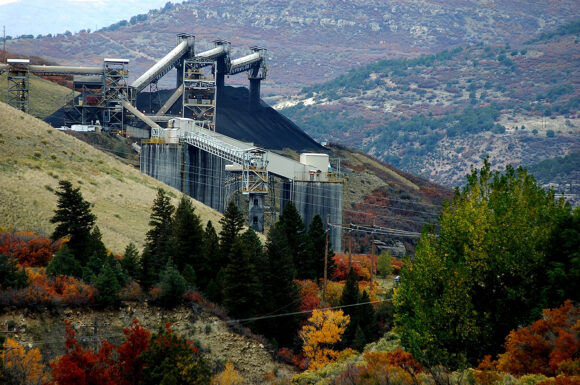First, states across the U.S. ordered utilities to clean up ponds full of toxic coal waste.
Now, they’re balking at how much companies want to charge for the work.
Officials from Virginia to North Carolina to South Carolina are pushing back on utilities’ plans to charge customers for the costs of shuttering coal-ash ponds, long the primary way of storing residue from coal-fired power plants. On Tuesday, the staff of Virginia’s utility regulator is expected to weigh in on whether Dominion Energy Inc. should be allowed to recover $247 million through monthly bills for cleanup efforts.
It’s a high-stakes battle for utilities, which have so far escaped any shareholder wrath over cleanup expenses because investors assumed the costs would be baked into customers’ rates. Duke Energy Corp. in particular would take a big hit as the utility is estimating costs of as much as $10.6 billion in the Carolinas. Officials there are already challenging more than a half-billion dollars.
“Any disallowance could become problematic” for utilities, said Paul Patterson, an analyst with Glenrock Associates. On the flip side, he asked, “How do you do this in a manner that it doesn’t become the straw that breaks the camel’s back and makes things unaffordable” for customers?
In Virginia, Dominion is asking for permission to charge customers the cost of a landfill, sedimentation ponds and water treatment facilities that it began building at an existing coal plant in 2015. Virginia Attorney General Mark Herring has challenged the request, saying the Richmond-based company failed to consider whether the project was necessary given the region’s bounty of cheap natural gas. He noted that Dominion had already decided to close two units at the plant and may shut two more by 2023.
The company’s project will probably provide “little or no value” to customers as a result of “these multiple decision-making failures,” energy consultant Scott Norwood said in testimony on behalf of the attorney general.
This has become a common refrain from officials across states — that utilities are to blame for letting their own bad situation fester, and for pumping waste into unlined pits for years that could let toxins seep into groundwater. Cleanup costs, therefore, should be borne by the companies and their shareholders, they say.
‘Well Understood’
Dominion said by email that it looks forward to “rebutting the attorney general’s claims point-by-point” when its case is heard by Virginia’s utility commission in June.
Utilities have, for the most part, argued that they routinely pass on the costs of complying with environmental regulations, so closing coal ash ponds should be no different. And states, they say, knew about the ponds all along.
“The impact of our operations and the nature of our operations have been well understood by every state in which we operate,” Duke Energy Chief Executive Officer Lynn Good said at an annual shareholders’ meeting this month when pressed about coal-ash cleanup.
Duke is fighting to recover coal-ash costs from ratepayers on two fronts.
River Spill
In North Carolina, Attorney General Josh Stein has challenged decisions by utility regulators that allowed Duke to charge customers for as much as $778 million in cleanup costs. Coal ash has been a topic of fierce debate in North Carolina for years, particularly after 39,000 tons of ash spilled into the Dan River in 2014. Stein — in a case now before the Supreme Court of North Carolina — argued that Duke mismanaged its coal ash ponds and knew for decades that the pits were polluting groundwater.
In South Carolina, utility regulators have moved to deny Duke about $162 million in costs. The state is arguing that the expenses are the result of North Carolina’s coal-ash laws, so South Carolina ratepayers shouldn’t have to pay.
Duke spokesman Tim Pettit said the company runs its North and South Carolina facilities as a single, integrated system. Customers in both states benefit from all the facilities, so the costs of operating that system have traditionally been apportioned between ratepayers in both states, he said.
It’s the first time South Carolina’s utility regulators have questioned coal-ash costs, according to Duke Chief Financial Officer Steven Young.
He told investors during a conference call last week that the costs were “prudently incurred.” They are, he said, “part of the life-cycle” of a coal plant.
Was this article valuable?
Here are more articles you may enjoy.


 China Bans Hidden Car Door Handles in World-First Safety Policy
China Bans Hidden Car Door Handles in World-First Safety Policy  LA County Told to Pause $4B in Abuse Payouts as DA Probes Fraud Claims
LA County Told to Pause $4B in Abuse Payouts as DA Probes Fraud Claims  Berkshire Utility Presses Wildfire Appeal With Billions at Stake
Berkshire Utility Presses Wildfire Appeal With Billions at Stake  Canceled FEMA Review Council Vote Leaves Flood Insurance Reforms in Limbo
Canceled FEMA Review Council Vote Leaves Flood Insurance Reforms in Limbo 